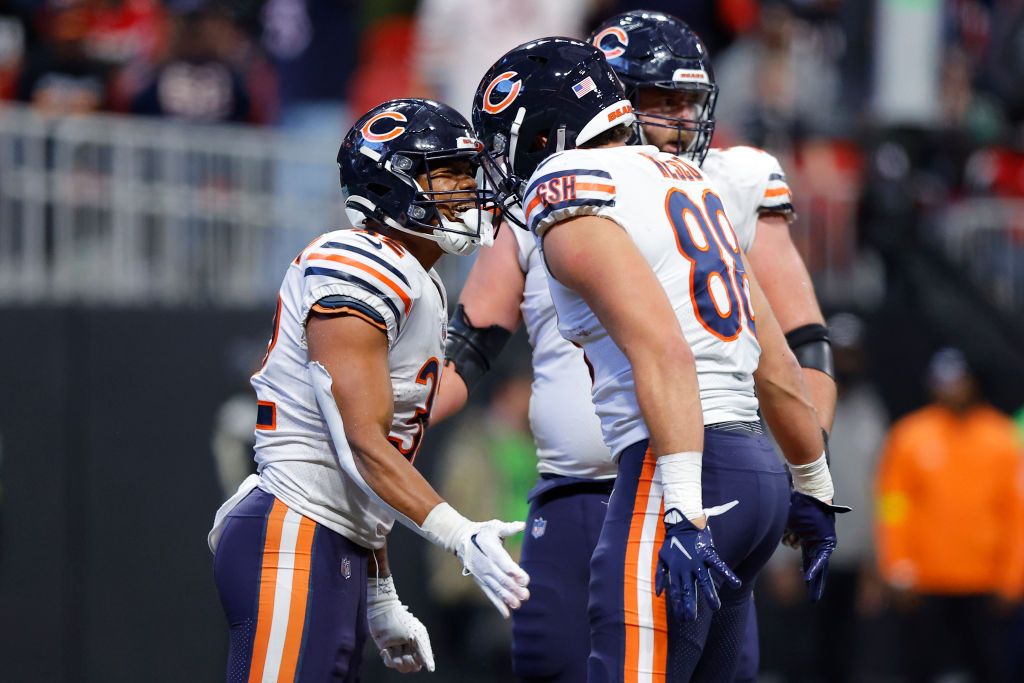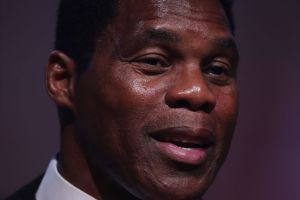This has been a busy offseason for the Chicago Bears, between the blockbuster trade that brought them D.J. Moore and also — more under the radar — their contract negotiations with cities in and around Chicago as the team considers leaving Soldier Field, the smallest NFL stadium.
For months, those tracking the Bears’ decision-making felt that a racetrack in Chicago’s northwestern suburb of Arlington Heights had the inside track to host the storied football team. However, a confluence of bad timing and a progressive county assessor has allowed other cities to argue that the Bears should relocate to them instead.
Kevin Warren, the Bears’ president, recently said that Arlington Heights isn’t the team’s only alternative, saying they are at a “stalemate and [have] a lack of communication” with the city.
In 2021, the fiftieth year the Bears had played in Soldier Field, the team announced it purchased a massive swathe of land in Arlington Heights, with plans to turn a defunct racetrack into a massive new complex. In recent months, though, Cook County’s assessor, Fritz Kaegi, reassessed the property’s value at almost six times its previous value, sending the proposed tax bill to the Bears through the roof for a property at which they don’t even play.
Sensing opportunity posed by Kaegi’s assessment, which took the value of the new Bears property from $33 million to what the sale price was, which is $197.2 million, other cities pounced. Kaegi’s assessment could raise the Bears’ bill from $2.75 million a year to $16.5 million before they even break ground. While this may seem like small potatoes to an NFL team, the Bears’ owners are not wealthy outside of their ownership of the franchise, and have historically been penny-pinchers.
Richard Irvin, the mayor of Aurora, a southwestern suburb of Chicago, told The Spectator that his city is the perfect destination for the Bears. “I heard that Arlington Heights was not their priority anymore and I thought, why not the second largest city in the state of Illinois?” he said. “We’ve got the bandwidth, we’ve got the property options, we have the political will.”
Irvin is onto something. His fellow Illinoisans are quick to praise his record of economic development, which includes luring a massive casino to his city’s entertainment district, which he says is how he’ll reel the Bears in. “We just did a $360 million gaming deal with Penn Gaming to build a Hollywood Casino resort here in the city of Aurora that’s going to be the largest casino in the state of Illinois rivaling those in Vegas,” he said. “We used that political influence, that political will, and brought our community in, got our aldermen on board, and all the other taxing bodies on board and made sure we got the job done, and we’ll do that exact same thing and work even harder to get the Chicago Bears in the city of Aurora.”
It’s no secret that Aurora isn’t as geographically close to Chicago’s center as Arlington Heights, but Irvin has a plan for that. There are several tracts of land he already thinks could “perfectly” house the Bears, which are “easily accessible from the expressway, [and] in a place where we don’t have a lot of backup traffic like they have in Chicago. It’s atrocious to go to a Bears game in the city of Chicago… and being only forty miles southwest of Chicago, we believe we are in a central location to attract not just Chicago and the Chicagoland area but folks from south of us that may not normally have thought about traveling to Chicago for a Bears game.”
Funding a new stadium won’t come cheap; estimates clock it in at least $2 billion, which Irvin says calls for “an all hands on deck, public-private partnership approach.” While Kaegi is making the Bears’ lives difficult, Irvin wants to work with them. “This isn’t simply a team moving to the city. It’s a partnership that will last now and well into the future. We’re looking to partner.”
As the NFL has evolved, more teams are building out sprawling, year-round complexes to complement their gameday events. Soldier Field recently hosted Taylor Swift, for example, and Irvin wants his venue to be a concert destination; like the Gen X-er he is, he wants Jay-Z, Beyoncé and a sprinkle of Justin Timberlake to inaugurate the venue.
Irvin’s plans are on some level running against history; in the past, Aurora’s pitches to the Bears were viewed as ways the team could extract more concessions from Chicago. This time, he says, it’s different. “We’re not a city you use as a negotiating tool…we’re the second largest city in the state. Now we’re acting like it. I don’t know in years past that we acted like it.” And the Bears would be chasing their own history: their legendary running back set up his business, Walter Peyton’s Roundhouse, in Aurora.
While the future is uncertain, Irvin predicted that a few years down the road, he and I are “sitting in the mayor’s box looking over the field and seeing the Bears win everything.” Given the Bears’ recent history, predictions of them winning everything are rough, but the mayor is confident that he can inaugurate a new era for the “Bears in the Bright Lights.” He just needs the team to give him a chance.





















